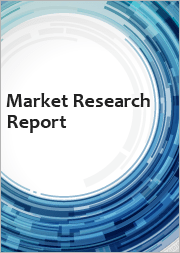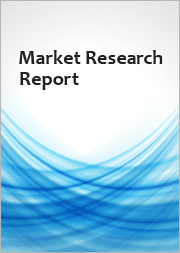
|
시장보고서
상품코드
1632983
원료의약품(API) 시장 분석과예측 : 유형, 제품, 서비스, 기술, 용도, 형태, 프로세스, 최종 사용자, 스테이지별(-2033년)Active Pharmaceutical Ingredient Market Analysis and Forecast to 2033: Type, Product, Services, Technology, Application, Form, Process, End User, Stage |
||||||
원료의약품(API) 시장은 2023년 2,452억 달러에서 2033년 4,153억 달러로 확대 될 것으로 예상되며, CAGR은 약 5.6%로 예측되고 있습니다.
원료의약품(API) 시장에는 의약품 제형에 사용되는 생물학적 활성 물질의 생산과 공급이 포함됩니다. 여기에는 치료 효과에 필수적인 합성 화학 화합물 및 생물학적 분자가 포함됩니다. 시장은 의약품 개발의 진보, 만성 질환의 만연, 제네릭 의약품 수요가 증가함에 따라 의약품 제조의 혁신과 확대가 촉진되고 있습니다.
원료의약품(API) 시장은 혁신적인 제네릭 의약품 수요 증가에 힘입어 강력한 성장을 이루고 있습니다. 합성 API는 만성 질환 치료에 대한 광범위한 사용과 비용 효과에 견인되어 시장을 독점하고 있습니다. 원료의약품(API)는 바이오테크놀러지와 맞춤형 의료의 진보를 반영하여 두 번째로 높은 실적을 올리고 있는 하위 부문입니다. 암 영역은 암 이환율의 상승에 따라 고도의 치료 솔루션이 필요해 현저한 성장을 이루고 있습니다. 지역별로는 북미가 강력한 R&D 투자와 확립된 제약산업으로 시장을 선도하고 있습니다. 2위는 유럽에서 지지적인 규제 프레임워크과 바이오시밀러에 주력의 혜택을 받고 있습니다. 국가별로는 미국이 혁신과 강력한 헬스케어 인프라에 견인되어 톱입니다. 인도는 주요 제네릭 의약품 제조 및 수출국으로서의 지위를 활용해 2번째로 높은 실적을 올리고 있습니다. 시장 확대는 전략적 제휴, 기술 진보, 유리한 정부 정책에 의해 더욱 강화되고 있습니다.
2023년 원료의약품(API) 시장은 380만 톤으로 추정되며, 2033년에는 550만 톤에 이를 것으로 예측됩니다. 합성 API 분야가 55%로 최대 시장 점유율을 차지한 다음 바이오 API 분야가 30%, 제네릭 API 분야가 15%가 되고 있습니다. 합성 원약 부문의 성장은 화학 합성의 진보와 심장혈관 약과 암 치료제에 대한 높은 수요가 견인하고 있습니다. API 시장의 선도 기업은 Teva Pharmaceutical Industries, Pfizer Inc., Novartis AG 등을 포함하고 있으며, 각각은 큰 시장 점유율을 차지합니다. 이러한 기업의 전략은 매우 중요하며 테바는 비용 효율적인 생산에 주력하고 있으며, 화이자는 R&D 능력을 확대하고 있습니다.
경쟁 구도은 미국 FDA 및 유럽 의약청의 지침을 포함한 엄격한 규제 프레임워크에 의해 형성되며 규정 준수 비용과 시장 진입 장벽에 영향을 미칩니다. 시장이 발전함에 따라 혁신적인 R&D 투자 및 생명공학의 발전이 필수적입니다. 2033년까지 연구개발비가 10% 증가할 것으로 예측되고 있으며, 이것이 성장을 가속할 것으로 기대되고 있습니다. API 시장의 전반적인 전망은 여전히 낙관적이며 생명 공학 API와 맞춤형 의료에 유리한 기회가 있습니다. 그러나 규제 복잡성과 저가 제조업체와의 경쟁과 같은 문제는 여전히 남아 있습니다. 의약품 개발에서 AI와 머신러닝의 통합은 새로운 성장 길을 열 것으로 예상됩니다.
아시아태평양은 원료의약품(API) 시장을 독점하고 있습니다. 이것은 주로 중국과 인도와 같은 국가에서 견고한 의약품 제조 능력 때문입니다. 이 나라들은 비용 효율적인 생산과 숙련된 노동력을 제공하여 많은 투자를 유치하고 있습니다. 게다가 만성질환 증가와 제네릭 의약품 수요 증가도 이 지역 시장 성장을 뒷받침하고 있습니다.
북미는 미국을 필두로 API 시장에서 큰 점유율을 차지하고 있습니다. 이 지역은 첨단 건강 관리 인프라와 엄청난 연구 개발 투자로 혜택을 누리고 있습니다. 주요 제약 회사가 존재하고 혁신적인 의약품 개발에 주력하는 것도 시장을 더욱 강화하고 있습니다.
유럽도 API 시장에서 중요한 역할을 합니다. 독일, 프랑스, 이탈리아 등의 국가들은 엄격한 규제 기준과 품질 중심의 자세를 배경으로 주요 공헌국이 되고 있습니다. 이 지역은 바이오시밀러와 특수 의약품에 주력하고 있으며, 진보된 치료제에 대한 수요 증가에 대응하여 시장의 지위를 높이고 있습니다.
라틴아메리카는 API 시장에서 주목할만한 선수로 부상하고 있습니다. 브라질과 멕시코는 최전선으로 헬스케어 시스템의 개선과 의약품 제조 활동 증가에 지지되고 있습니다. 이 지역의 중간층 인구 증가와 헬스케어 지출 증가는 시장 확대의 선호가 됩니다.
중동 및 아프리카은 API 시장에서 유망한 잠재력을 보여줍니다. 이 지역에서는 의료 인프라와 의약품 제조에 대한 투자가 증가하고 있습니다. 사우디아라비아와 남아프리카와 같은 국가는 현지 생산 능력을 강화하고 수입에 대한 의존도를 줄이기 위해 정부 이니셔티브에 힘입어 주요 시장입니다.
목차
제1장 의약품 원약(API) 시장 개요
- 조사 목적
- 원료의약품(API) 시장 정의와 조사 범위
- 보고서 제한
- 조사 대상 연도와 통화
- 조사 방법
제2장 주요 요약
제3장 시장에 관한 중요 인사이트
제4장 원료의약품(API) 시장 전망
- 원료의약품(API) 시장의 세분화
- 시장 역학
- Porter's Five Forces 분석
- PESTLE 분석
- 밸류체인 분석
- 4P 모델
- ANSOFF 매트릭스
제5장 원료의약품(API) 시장 전략
- 상위 시장 분석
- 수급 분석
- 소비자의 구매 의욕
- 사례 연구 분석
- 가격 분석
- 규제 상황
- 공급망 분석
- 경쟁 제품 분석
- 최근 동향
제6장 원료의약품(API) 시장 규모
- 원료의약품(API) 시장 규모 : 금액별
- 원료의약품(API) 시장 규모 : 수량별
제7장 원료의약품(API) 시장 : 유형별
- 시장 개요
- 합성
- 바이오
- 천연
- 고활성
- 제네릭
- 혁신적
- 규제물질
- 기타
제8장 원료의약품(API) 시장 : 제품별
- 시장 개요
- 저분자
- 고분자
- 호르몬
- 펩티드
- 올리고뉴클레오티드
- 단클론항체
- 기타
제9장 원료의약품(API) 시장 : 서비스별
- 시장 개요
- 수탁개발
- 제조
- 분석시험
- 규제 대응
- 기타
제10장 원료의약품(API) 시장 : 기술별
- 시장 개요
- 화학합성
- 생명공학
- 발효
- 크로마토그래피
- 동결건조
- 나노기술
- 기타
제11장 원료의약품(API) 시장 : 용도별
- 시장 개요
- 심혈관
- 종양학
- 신경
- 감염증
- 당뇨병
- 통증 관리
- 호흡기
- 기타
제12장 원료의약품(API) 시장 : 형태별
- 시장 개요
- 고체
- 액체
- 반고형
- 기타
제13장 원료의약품(API) 시장 : 프로세스별
- 시장 개요
- 자사 제조
- 외부 위탁
- 기타
제14장 원료의약품(API) 시장 : 최종 사용자별
- 시장 개요
- 제약기업
- 바이오테크놀러지 기업
- 제조 수탁 기관
- 연구기관
- 기타
제15장 원료의약품(API) 시장 : 설치 유형별
- 시장 개요
- 독립형
- 통합형
- 기타
제16장 원료의약품(API) 시장 : 스테이지별
- 시장 개요
- 전임상
- 임상
- 상업
- 기타
제17장 원료의약품(API) 시장 : 지역별
- 개요
- 북미
- 미국
- 캐나다
- 유럽
- 영국
- 독일
- 프랑스
- 스페인
- 이탈리아
- 네덜란드
- 스웨덴
- 스위스
- 덴마크
- 핀란드
- 러시아
- 기타 유럽
- 아시아태평양
- 중국
- 인도
- 일본
- 한국
- 호주
- 싱가포르
- 인도네시아
- 대만
- 말레이시아
- 기타 아시아태평양
- 라틴아메리카
- 브라질
- 멕시코
- 아르헨티나
- 기타 라틴아메리카
- 중동 및 아프리카
- 사우디아라비아
- 아랍에미리트(UAE)
- 남아프리카
- 기타 중동?아프리카
제18장 경쟁 구도
- 개요
- 시장 점유율 분석
- 주요 기업의 포지셔닝
- 경쟁 리더십 매핑
- 벤더 벤치마킹
- 개발 전략의 벤치마킹
제19장 기업 프로파일
- Aurobindo Pharma
- Sun Pharmaceutical Industries
- Cipla
- Dr. Reddy's Laboratories
- Lupin
- Teva API
- Zhejiang Huahai Pharmaceutical
- Hikal
- Divis Laboratories
- Jubilant Life Sciences
- Shandong Xinhua Pharmaceutical
- Tianyu Pharma
- Cambrex Corporation
- FIS-Fabbrica Italiana Sintetici
- Almac Group
- Wuxi AppTec
- Siegfried Holding
- Esteve Quedmica
- Farmhispania
- Olon
The Active Pharmaceutical Ingredient market is anticipated to expand from $245.2 billion in 2023 to $415.3 billion by 2033, with a CAGR of approximately 5.6%.
The Active Pharmaceutical Ingredient (API) market encompasses the production and supply of biologically active substances used in drug formulation. It includes synthetic chemical compounds and biological molecules essential for therapeutic efficacy. The market is driven by advancements in drug development, increasing prevalence of chronic diseases, and the rising demand for generic medications, fostering innovation and expansion in pharmaceutical manufacturing.
The Active Pharmaceutical Ingredient (API) market is experiencing robust growth, propelled by the increasing demand for innovative and generic drugs. Synthetic APIs dominate the market, driven by their widespread use in chronic disease treatments and cost-effectiveness. Biotech APIs are the second-highest performing sub-segment, reflecting advancements in biotechnology and personalized medicine. The oncology segment is witnessing significant growth, with rising cancer prevalence necessitating advanced treatment solutions. Cardiovascular APIs follow, supported by the global burden of heart-related ailments.nnRegionally, North America leads the market, with strong R&D investments and a well-established pharmaceutical industry. Europe is the second-leading region, benefiting from supportive regulatory frameworks and a focus on biosimilars. Within countries, the United States stands out as a top performer, driven by innovation and a strong healthcare infrastructure. India emerges as the second-highest performing country, leveraging its position as a leading generic drug manufacturer and exporter. The market's expansion is further supported by strategic collaborations, technological advancements, and favorable government policies.
In 2023, the Active Pharmaceutical Ingredient (API) Market was estimated at a volume of 3.8 million metric tons, with projections to reach 5.5 million metric tons by 2033. The synthetic API segment holds the largest market share at 55%, followed by the biotech API segment at 30%, and the generic API segment at 15%. The growth of the synthetic segment is driven by advancements in chemical synthesis and the high demand for cardiovascular and oncology drugs. Leading players in the API Market include Teva Pharmaceutical Industries, Pfizer Inc., and Novartis AG, each holding significant market shares. These companies' strategies are pivotal, with Teva focusing on cost-effective production and Pfizer expanding its R&D capabilities.
The competitive landscape is shaped by stringent regulatory frameworks, including the U.S. FDA and European Medicines Agency guidelines, impacting compliance costs and market entry barriers. As the market progresses, investment in innovative R&D and biotechnological advancements will be essential. The overall outlook for the API Market remains optimistic, with lucrative opportunities in biotech APIs and personalized medicine. However, challenges such as regulatory complexities and competition from low-cost manufacturers persist. The integration of AI and machine learning in drug development is anticipated to open new growth avenues.
The Asia Pacific region dominates the Active Pharmaceutical Ingredient (API) market. This is primarily due to the robust pharmaceutical manufacturing capabilities in countries like China and India. These nations offer cost-effective production and a skilled workforce, attracting significant investments. Additionally, the increasing prevalence of chronic diseases and the rising demand for generic drugs drive market growth in this region.
North America holds a substantial share of the API market, with the United States leading the charge. The region benefits from advanced healthcare infrastructure and significant research and development investments. The presence of major pharmaceutical companies and a focus on innovative drug development further bolster the market.
Europe also plays a pivotal role in the API market. Countries such as Germany, France, and Italy are key contributors, driven by stringent regulatory standards and a strong emphasis on quality. The region's focus on biosimilars and specialty drugs enhances its market standing, catering to the growing demand for advanced therapeutics.
Latin America is emerging as a noteworthy player in the API market. Brazil and Mexico are at the forefront, supported by improving healthcare systems and increasing pharmaceutical manufacturing activities. The region's growing middle-class population and rising healthcare expenditure present lucrative opportunities for market expansion.
The Middle East and Africa region show promising potential in the API market. The region is witnessing increased investment in healthcare infrastructure and pharmaceutical manufacturing. Countries like Saudi Arabia and South Africa are key markets, driven by government initiatives to enhance local production capabilities and reduce dependency on imports.
Key Companies
Aurobindo Pharma, Sun Pharmaceutical Industries, Cipla, Dr. Reddy's Laboratories, Lupin, Teva API, Zhejiang Huahai Pharmaceutical, Hikal, Divis Laboratories, Jubilant Life Sciences, Shandong Xinhua Pharmaceutical, Tianyu Pharma, Cambrex Corporation, F. I. S. - Fabbrica Italiana Sintetici, Almac Group, Wuxi App Tec, Siegfried Holding, Esteve Quedmica, Farmhispania, Olon
Sources
U.S. Food and Drug Administration - Center for Drug Evaluation and Research, European Medicines Agency, World Health Organization - Essential Medicines and Health Products, International Pharmaceutical Federation (FIP), U.S. National Institutes of Health - National Center for Biotechnology Information, The United Nations Industrial Development Organization (UNIDO), The Pharmaceutical Research and Manufacturers of America (PhRMA), The International Federation of Pharmaceutical Manufacturers & Associations (IFPMA), The International Conference on Harmonisation of Technical Requirements for Pharmaceuticals for Human Use (ICH), European Federation of Pharmaceutical Industries and Associations (EFPIA), The International Society for Pharmaceutical Engineering (ISPE), American Association of Pharmaceutical Scientists (AAPS), The Royal Pharmaceutical Society, Federation of Asian Pharmaceutical Associations, The Pharmaceutical Society of Japan, World Congress on Pharmaceutical Sciences and Innovations in Pharma Industry, International Pharmaceutical Conference and Expo, International Conference on Pharmaceutical Regulatory Affairs, The International Pharmaceutical Students' Federation (IPSF), The Global Forum on Pharmaceutical Anti-Counterfeiting
Research Scope
- Estimates and forecasts the overall market size across type, application, and region.
- Provides detailed information and key takeaways on qualitative and quantitative trends, dynamics, business framework, competitive landscape, and company profiling.
- Identifies factors influencing market growth and challenges, opportunities, drivers, and restraints.
- Identifies factors that could limit company participation in international markets to help calibrate market share expectations and growth rates.
- Evaluates key development strategies like acquisitions, product launches, mergers, collaborations, business expansions, agreements, partnerships, and R&D activities.
- Analyzes smaller market segments strategically, focusing on their potential, growth patterns, and impact on the overall market.
- Outlines the competitive landscape, assessing business and corporate strategies to monitor and dissect competitive advancements.
Our research scope provides comprehensive market data, insights, and analysis across a variety of critical areas. We cover Local Market Analysis, assessing consumer demographics, purchasing behaviors, and market size within specific regions to identify growth opportunities. Our Local Competition Review offers a detailed evaluation of competitors, including their strengths, weaknesses, and market positioning. We also conduct Local Regulatory Reviews to ensure businesses comply with relevant laws and regulations. Industry Analysis provides an in-depth look at market dynamics, key players, and trends. Additionally, we offer Cross-Segmental Analysis to identify synergies between different market segments, as well as Production-Consumption and Demand-Supply Analysis to optimize supply chain efficiency. Our Import-Export Analysis helps businesses navigate global trade environments by evaluating trade flows and policies. These insights empower clients to make informed strategic decisions, mitigate risks, and capitalize on market opportunities.
TABLE OF CONTENTS
1: Active Pharmaceutical Ingredient Market Overview
- 1.1 Objectives of the Study
- 1.2 Active Pharmaceutical Ingredient Market Definition and Scope of the Report
- 1.3 Report Limitations
- 1.4 Years & Currency Considered in the Study
- 1.5 Research Methodologies
- 1.5.1 Secondary Research
- 1.5.2 Primary Research
- 1.5.3 Market Size Estimation: Top-Down Approach
- 1.5.4 Market Size Estimation: Bottom-Up Approach
- 1.5.5 Data Triangulation and Validation
2: Executive Summary
- 2.1 Summary
- 2.2 Key Opinion Leaders
- 2.3 Key Highlights of the Market, by Type
- 2.4 Key Highlights of the Market, by Product
- 2.5 Key Highlights of the Market, by Services
- 2.6 Key Highlights of the Market, by Technology
- 2.7 Key Highlights of the Market, by Application
- 2.8 Key Highlights of the Market, by Form
- 2.9 Key Highlights of the Market, by Process
- 2.10 Key Highlights of the Market, by End User
- 2.11 Key Highlights of the Market, by Installation Type
- 2.12 Key Highlights of the Market, by Stage
- 2.13 Key Highlights of the Market, by North America
- 2.14 Key Highlights of the Market, by Europe
- 2.15 Key Highlights of the Market, by Asia-Pacific
- 2.16 Key Highlights of the Market, by Latin America
- 2.17 Key Highlights of the Market, by Middle East
- 2.18 Key Highlights of the Market, by Africa
3: Premium Insights on the Market
- 3.1 Market Attractiveness Analysis, by Region
- 3.2 Market Attractiveness Analysis, by Type
- 3.3 Market Attractiveness Analysis, by Product
- 3.4 Market Attractiveness Analysis, by Services
- 3.5 Market Attractiveness Analysis, by Technology
- 3.6 Market Attractiveness Analysis, by Application
- 3.7 Market Attractiveness Analysis, by Form
- 3.8 Market Attractiveness Analysis, by Process
- 3.9 Market Attractiveness Analysis, by End User
- 3.10 Market Attractiveness Analysis, by Installation Type
- 3.11 Market Attractiveness Analysis, by Stage
- 3.12 Market Attractiveness Analysis, by North America
- 3.13 Market Attractiveness Analysis, by Europe
- 3.14 Market Attractiveness Analysis, by Asia-Pacific
- 3.15 Market Attractiveness Analysis, by Latin America
- 3.16 Market Attractiveness Analysis, by Middle East
- 3.17 Market Attractiveness Analysis, by Africa
4: Active Pharmaceutical Ingredient Market Outlook
- 4.1 Active Pharmaceutical Ingredient Market Segmentation
- 4.2 Market Dynamics
- 4.2.1 Market Drivers
- 4.2.2 Market Trends
- 4.2.3 Market Restraints
- 4.2.4 Market Opportunities
- 4.3 Porters Five Forces Analysis
- 4.3.1 Threat of New Entrants
- 4.3.2 Threat of Substitutes
- 4.3.3 Bargaining Power of Buyers
- 4.3.4 Bargaining Power of Supplier
- 4.3.5 Competitive Rivalry
- 4.4 PESTLE Analysis
- 4.5 Value Chain Analysis
- 4.6 4Ps Model
- 4.7 ANSOFF Matrix
5: Active Pharmaceutical Ingredient Market Strategy
- 5.1 Parent Market Analysis
- 5.2 Supply-Demand Analysis
- 5.3 Consumer Buying Interest
- 5.4 Case Study Analysis
- 5.5 Pricing Analysis
- 5.6 Regulatory Landscape
- 5.7 Supply Chain Analysis
- 5.8 Competition Product Analysis
- 5.9 Recent Developments
6: Active Pharmaceutical Ingredient Market Size
- 6.1 Active Pharmaceutical Ingredient Market Size, by Value
- 6.2 Active Pharmaceutical Ingredient Market Size, by Volume
7: Active Pharmaceutical Ingredient Market, by Type
- 7.1 Market Overview
- 7.2 Synthetic
- 7.2.1 Key Market Trends & Opportunity Analysis
- 7.2.2 Market Size and Forecast, by Region
- 7.3 Biotech
- 7.3.1 Key Market Trends & Opportunity Analysis
- 7.3.2 Market Size and Forecast, by Region
- 7.4 Natural
- 7.4.1 Key Market Trends & Opportunity Analysis
- 7.4.2 Market Size and Forecast, by Region
- 7.5 Highly Potent
- 7.5.1 Key Market Trends & Opportunity Analysis
- 7.5.2 Market Size and Forecast, by Region
- 7.6 Generic
- 7.6.1 Key Market Trends & Opportunity Analysis
- 7.6.2 Market Size and Forecast, by Region
- 7.7 Innovative
- 7.7.1 Key Market Trends & Opportunity Analysis
- 7.7.2 Market Size and Forecast, by Region
- 7.8 Controlled Substances
- 7.8.1 Key Market Trends & Opportunity Analysis
- 7.8.2 Market Size and Forecast, by Region
- 7.9 Others
- 7.9.1 Key Market Trends & Opportunity Analysis
- 7.9.2 Market Size and Forecast, by Region
8: Active Pharmaceutical Ingredient Market, by Product
- 8.1 Market Overview
- 8.2 Small Molecule
- 8.2.1 Key Market Trends & Opportunity Analysis
- 8.2.2 Market Size and Forecast, by Region
- 8.3 Large Molecule
- 8.3.1 Key Market Trends & Opportunity Analysis
- 8.3.2 Market Size and Forecast, by Region
- 8.4 Hormones
- 8.4.1 Key Market Trends & Opportunity Analysis
- 8.4.2 Market Size and Forecast, by Region
- 8.5 Peptides
- 8.5.1 Key Market Trends & Opportunity Analysis
- 8.5.2 Market Size and Forecast, by Region
- 8.6 Oligonucleotides
- 8.6.1 Key Market Trends & Opportunity Analysis
- 8.6.2 Market Size and Forecast, by Region
- 8.7 Monoclonal Antibodies
- 8.7.1 Key Market Trends & Opportunity Analysis
- 8.7.2 Market Size and Forecast, by Region
- 8.8 Others
- 8.8.1 Key Market Trends & Opportunity Analysis
- 8.8.2 Market Size and Forecast, by Region
9: Active Pharmaceutical Ingredient Market, by Services
- 9.1 Market Overview
- 9.2 Contract Development
- 9.2.1 Key Market Trends & Opportunity Analysis
- 9.2.2 Market Size and Forecast, by Region
- 9.3 Manufacturing
- 9.3.1 Key Market Trends & Opportunity Analysis
- 9.3.2 Market Size and Forecast, by Region
- 9.4 Analytical Testing
- 9.4.1 Key Market Trends & Opportunity Analysis
- 9.4.2 Market Size and Forecast, by Region
- 9.5 Regulatory Compliance
- 9.5.1 Key Market Trends & Opportunity Analysis
- 9.5.2 Market Size and Forecast, by Region
- 9.6 Others
- 9.6.1 Key Market Trends & Opportunity Analysis
- 9.6.2 Market Size and Forecast, by Region
10: Active Pharmaceutical Ingredient Market, by Technology
- 10.1 Market Overview
- 10.2 Chemical Synthesis
- 10.2.1 Key Market Trends & Opportunity Analysis
- 10.2.2 Market Size and Forecast, by Region
- 10.3 Biotechnology
- 10.3.1 Key Market Trends & Opportunity Analysis
- 10.3.2 Market Size and Forecast, by Region
- 10.4 Fermentation
- 10.4.1 Key Market Trends & Opportunity Analysis
- 10.4.2 Market Size and Forecast, by Region
- 10.5 Chromatography
- 10.5.1 Key Market Trends & Opportunity Analysis
- 10.5.2 Market Size and Forecast, by Region
- 10.6 Lyophilization
- 10.6.1 Key Market Trends & Opportunity Analysis
- 10.6.2 Market Size and Forecast, by Region
- 10.7 Nanotechnology
- 10.7.1 Key Market Trends & Opportunity Analysis
- 10.7.2 Market Size and Forecast, by Region
- 10.8 Others
- 10.8.1 Key Market Trends & Opportunity Analysis
- 10.8.2 Market Size and Forecast, by Region
11: Active Pharmaceutical Ingredient Market, by Application
- 11.1 Market Overview
- 11.2 Cardiovascular
- 11.2.1 Key Market Trends & Opportunity Analysis
- 11.2.2 Market Size and Forecast, by Region
- 11.3 Oncology
- 11.3.1 Key Market Trends & Opportunity Analysis
- 11.3.2 Market Size and Forecast, by Region
- 11.4 Neurology
- 11.4.1 Key Market Trends & Opportunity Analysis
- 11.4.2 Market Size and Forecast, by Region
- 11.5 Infectious Diseases
- 11.5.1 Key Market Trends & Opportunity Analysis
- 11.5.2 Market Size and Forecast, by Region
- 11.6 Diabetes
- 11.6.1 Key Market Trends & Opportunity Analysis
- 11.6.2 Market Size and Forecast, by Region
- 11.7 Pain Management
- 11.7.1 Key Market Trends & Opportunity Analysis
- 11.7.2 Market Size and Forecast, by Region
- 11.8 Respiratory
- 11.8.1 Key Market Trends & Opportunity Analysis
- 11.8.2 Market Size and Forecast, by Region
- 11.9 Others
- 11.9.1 Key Market Trends & Opportunity Analysis
- 11.9.2 Market Size and Forecast, by Region
12: Active Pharmaceutical Ingredient Market, by Form
- 12.1 Market Overview
- 12.2 Solid
- 12.2.1 Key Market Trends & Opportunity Analysis
- 12.2.2 Market Size and Forecast, by Region
- 12.3 Liquid
- 12.3.1 Key Market Trends & Opportunity Analysis
- 12.3.2 Market Size and Forecast, by Region
- 12.4 Semi-solid
- 12.4.1 Key Market Trends & Opportunity Analysis
- 12.4.2 Market Size and Forecast, by Region
- 12.5 Others
- 12.5.1 Key Market Trends & Opportunity Analysis
- 12.5.2 Market Size and Forecast, by Region
13: Active Pharmaceutical Ingredient Market, by Process
- 13.1 Market Overview
- 13.2 In-house
- 13.2.1 Key Market Trends & Opportunity Analysis
- 13.2.2 Market Size and Forecast, by Region
- 13.3 Outsourced
- 13.3.1 Key Market Trends & Opportunity Analysis
- 13.3.2 Market Size and Forecast, by Region
- 13.4 Others
- 13.4.1 Key Market Trends & Opportunity Analysis
- 13.4.2 Market Size and Forecast, by Region
14: Active Pharmaceutical Ingredient Market, by End User
- 14.1 Market Overview
- 14.2 Pharmaceutical Companies
- 14.2.1 Key Market Trends & Opportunity Analysis
- 14.2.2 Market Size and Forecast, by Region
- 14.3 Biotechnology Companies
- 14.3.1 Key Market Trends & Opportunity Analysis
- 14.3.2 Market Size and Forecast, by Region
- 14.4 Contract Manufacturing Organizations
- 14.4.1 Key Market Trends & Opportunity Analysis
- 14.4.2 Market Size and Forecast, by Region
- 14.5 Research Institutes
- 14.5.1 Key Market Trends & Opportunity Analysis
- 14.5.2 Market Size and Forecast, by Region
- 14.6 Others
- 14.6.1 Key Market Trends & Opportunity Analysis
- 14.6.2 Market Size and Forecast, by Region
15: Active Pharmaceutical Ingredient Market, by Installation Type
- 15.1 Market Overview
- 15.2 Standalone
- 15.2.1 Key Market Trends & Opportunity Analysis
- 15.2.2 Market Size and Forecast, by Region
- 15.3 Integrated
- 15.3.1 Key Market Trends & Opportunity Analysis
- 15.3.2 Market Size and Forecast, by Region
- 15.4 Others
- 15.4.1 Key Market Trends & Opportunity Analysis
- 15.4.2 Market Size and Forecast, by Region
16: Active Pharmaceutical Ingredient Market, by Stage
- 16.1 Market Overview
- 16.2 Pre-clinical
- 16.2.1 Key Market Trends & Opportunity Analysis
- 16.2.2 Market Size and Forecast, by Region
- 16.3 Clinical
- 16.3.1 Key Market Trends & Opportunity Analysis
- 16.3.2 Market Size and Forecast, by Region
- 16.4 Commercial
- 16.4.1 Key Market Trends & Opportunity Analysis
- 16.4.2 Market Size and Forecast, by Region
- 16.5 Others
- 16.5.1 Key Market Trends & Opportunity Analysis
- 16.5.2 Market Size and Forecast, by Region
17: Active Pharmaceutical Ingredient Market, by Region
- 17.1 Overview
- 17.2 North America
- 17.2.1 Key Market Trends and Opportunities
- 17.2.2 North America Market Size and Forecast, by Type
- 17.2.3 North America Market Size and Forecast, by Product
- 17.2.4 North America Market Size and Forecast, by Services
- 17.2.5 North America Market Size and Forecast, by Technology
- 17.2.6 North America Market Size and Forecast, by Application
- 17.2.7 North America Market Size and Forecast, by Form
- 17.2.8 North America Market Size and Forecast, by Process
- 17.2.9 North America Market Size and Forecast, by End User
- 17.2.10 North America Market Size and Forecast, by Installation Type
- 17.2.11 North America Market Size and Forecast, by Stage
- 17.2.12 North America Market Size and Forecast, by Country
- 17.2.13 United States
- 17.2.9.1 United States Market Size and Forecast, by Type
- 17.2.9.2 United States Market Size and Forecast, by Product
- 17.2.9.3 United States Market Size and Forecast, by Services
- 17.2.9.4 United States Market Size and Forecast, by Technology
- 17.2.9.5 United States Market Size and Forecast, by Application
- 17.2.9.6 United States Market Size and Forecast, by Form
- 17.2.9.7 United States Market Size and Forecast, by Process
- 17.2.9.8 United States Market Size and Forecast, by End User
- 17.2.9.9 United States Market Size and Forecast, by Installation Type
- 17.2.9.10 United States Market Size and Forecast, by Stage
- 17.2.9.11 Local Competition Analysis
- 17.2.9.12 Local Market Analysis
- 17.2.1 Canada
- 17.2.10.1 Canada Market Size and Forecast, by Type
- 17.2.10.2 Canada Market Size and Forecast, by Product
- 17.2.10.3 Canada Market Size and Forecast, by Services
- 17.2.10.4 Canada Market Size and Forecast, by Technology
- 17.2.10.5 Canada Market Size and Forecast, by Application
- 17.2.10.6 Canada Market Size and Forecast, by Form
- 17.2.10.7 Canada Market Size and Forecast, by Process
- 17.2.10.8 Canada Market Size and Forecast, by End User
- 17.2.10.9 Canada Market Size and Forecast, by Installation Type
- 17.2.10.10 Canada Market Size and Forecast, by Stage
- 17.2.10.11 Local Competition Analysis
- 17.2.10.12 Local Market Analysis
- 17.1 Europe
- 17.3.1 Key Market Trends and Opportunities
- 17.3.2 Europe Market Size and Forecast, by Type
- 17.3.3 Europe Market Size and Forecast, by Product
- 17.3.4 Europe Market Size and Forecast, by Services
- 17.3.5 Europe Market Size and Forecast, by Technology
- 17.3.6 Europe Market Size and Forecast, by Application
- 17.3.7 Europe Market Size and Forecast, by Form
- 17.3.8 Europe Market Size and Forecast, by Process
- 17.3.9 Europe Market Size and Forecast, by End User
- 17.3.10 Europe Market Size and Forecast, by Installation Type
- 17.3.11 Europe Market Size and Forecast, by Stage
- 17.3.12 Europe Market Size and Forecast, by Country
- 17.3.13 United Kingdom
- 17.3.9.1 United Kingdom Market Size and Forecast, by Type
- 17.3.9.2 United Kingdom Market Size and Forecast, by Product
- 17.3.9.3 United Kingdom Market Size and Forecast, by Services
- 17.3.9.4 United Kingdom Market Size and Forecast, by Technology
- 17.3.9.5 United Kingdom Market Size and Forecast, by Application
- 17.3.9.6 United Kingdom Market Size and Forecast, by Form
- 17.3.9.7 United Kingdom Market Size and Forecast, by Process
- 17.3.9.8 United Kingdom Market Size and Forecast, by End User
- 17.3.9.9 United Kingdom Market Size and Forecast, by Installation Type
- 17.3.9.10 United Kingdom Market Size and Forecast, by Stage
- 17.3.9.11 Local Competition Analysis
- 17.3.9.12 Local Market Analysis
- 17.3.1 Germany
- 17.3.10.1 Germany Market Size and Forecast, by Type
- 17.3.10.2 Germany Market Size and Forecast, by Product
- 17.3.10.3 Germany Market Size and Forecast, by Services
- 17.3.10.4 Germany Market Size and Forecast, by Technology
- 17.3.10.5 Germany Market Size and Forecast, by Application
- 17.3.10.6 Germany Market Size and Forecast, by Form
- 17.3.10.7 Germany Market Size and Forecast, by Process
- 17.3.10.8 Germany Market Size and Forecast, by End User
- 17.3.10.9 Germany Market Size and Forecast, by Installation Type
- 17.3.10.10 Germany Market Size and Forecast, by Stage
- 17.3.10.11 Local Competition Analysis
- 17.3.10.12 Local Market Analysis
- 17.3.1 France
- 17.3.11.1 France Market Size and Forecast, by Type
- 17.3.11.2 France Market Size and Forecast, by Product
- 17.3.11.3 France Market Size and Forecast, by Services
- 17.3.11.4 France Market Size and Forecast, by Technology
- 17.3.11.5 France Market Size and Forecast, by Application
- 17.3.11.6 France Market Size and Forecast, by Form
- 17.3.11.7 France Market Size and Forecast, by Process
- 17.3.11.8 France Market Size and Forecast, by End User
- 17.3.11.9 France Market Size and Forecast, by Installation Type
- 17.3.11.10 France Market Size and Forecast, by Stage
- 17.3.11.11 Local Competition Analysis
- 17.3.11.12 Local Market Analysis
- 17.3.1 Spain
- 17.3.12.1 Spain Market Size and Forecast, by Type
- 17.3.12.2 Spain Market Size and Forecast, by Product
- 17.3.12.3 Spain Market Size and Forecast, by Services
- 17.3.12.4 Spain Market Size and Forecast, by Technology
- 17.3.12.5 Spain Market Size and Forecast, by Application
- 17.3.12.6 Spain Market Size and Forecast, by Form
- 17.3.12.7 Spain Market Size and Forecast, by Process
- 17.3.12.8 Spain Market Size and Forecast, by End User
- 17.3.12.9 Spain Market Size and Forecast, by Installation Type
- 17.3.12.10 Spain Market Size and Forecast, by Stage
- 17.3.12.11 Local Competition Analysis
- 17.3.12.12 Local Market Analysis
- 17.3.1 Italy
- 17.3.13.1 Italy Market Size and Forecast, by Type
- 17.3.13.2 Italy Market Size and Forecast, by Product
- 17.3.13.3 Italy Market Size and Forecast, by Services
- 17.3.13.4 Italy Market Size and Forecast, by Technology
- 17.3.13.5 Italy Market Size and Forecast, by Application
- 17.3.13.6 Italy Market Size and Forecast, by Form
- 17.3.13.7 Italy Market Size and Forecast, by Process
- 17.3.13.8 Italy Market Size and Forecast, by End User
- 17.3.13.9 Italy Market Size and Forecast, by Installation Type
- 17.3.13.10 Italy Market Size and Forecast, by Stage
- 17.3.13.11 Local Competition Analysis
- 17.3.13.12 Local Market Analysis
- 17.3.1 Netherlands
- 17.3.14.1 Netherlands Market Size and Forecast, by Type
- 17.3.14.2 Netherlands Market Size and Forecast, by Product
- 17.3.14.3 Netherlands Market Size and Forecast, by Services
- 17.3.14.4 Netherlands Market Size and Forecast, by Technology
- 17.3.14.5 Netherlands Market Size and Forecast, by Application
- 17.3.14.6 Netherlands Market Size and Forecast, by Form
- 17.3.14.7 Netherlands Market Size and Forecast, by Process
- 17.3.14.8 Netherlands Market Size and Forecast, by End User
- 17.3.14.9 Netherlands Market Size and Forecast, by Installation Type
- 17.3.14.10 Netherlands Market Size and Forecast, by Stage
- 17.3.14.11 Local Competition Analysis
- 17.3.14.12 Local Market Analysis
- 17.3.1 Sweden
- 17.3.15.1 Sweden Market Size and Forecast, by Type
- 17.3.15.2 Sweden Market Size and Forecast, by Product
- 17.3.15.3 Sweden Market Size and Forecast, by Services
- 17.3.15.4 Sweden Market Size and Forecast, by Technology
- 17.3.15.5 Sweden Market Size and Forecast, by Application
- 17.3.15.6 Sweden Market Size and Forecast, by Form
- 17.3.15.7 Sweden Market Size and Forecast, by Process
- 17.3.15.8 Sweden Market Size and Forecast, by End User
- 17.3.15.9 Sweden Market Size and Forecast, by Installation Type
- 17.3.15.10 Sweden Market Size and Forecast, by Stage
- 17.3.15.11 Local Competition Analysis
- 17.3.15.12 Local Market Analysis
- 17.3.1 Switzerland
- 17.3.16.1 Switzerland Market Size and Forecast, by Type
- 17.3.16.2 Switzerland Market Size and Forecast, by Product
- 17.3.16.3 Switzerland Market Size and Forecast, by Services
- 17.3.16.4 Switzerland Market Size and Forecast, by Technology
- 17.3.16.5 Switzerland Market Size and Forecast, by Application
- 17.3.16.6 Switzerland Market Size and Forecast, by Form
- 17.3.16.7 Switzerland Market Size and Forecast, by Process
- 17.3.16.8 Switzerland Market Size and Forecast, by End User
- 17.3.16.9 Switzerland Market Size and Forecast, by Installation Type
- 17.3.16.10 Switzerland Market Size and Forecast, by Stage
- 17.3.16.11 Local Competition Analysis
- 17.3.16.12 Local Market Analysis
- 17.3.1 Denmark
- 17.3.17.1 Denmark Market Size and Forecast, by Type
- 17.3.17.2 Denmark Market Size and Forecast, by Product
- 17.3.17.3 Denmark Market Size and Forecast, by Services
- 17.3.17.4 Denmark Market Size and Forecast, by Technology
- 17.3.17.5 Denmark Market Size and Forecast, by Application
- 17.3.17.6 Denmark Market Size and Forecast, by Form
- 17.3.17.7 Denmark Market Size and Forecast, by Process
- 17.3.17.8 Denmark Market Size and Forecast, by End User
- 17.3.17.9 Denmark Market Size and Forecast, by Installation Type
- 17.3.17.10 Denmark Market Size and Forecast, by Stage
- 17.3.17.11 Local Competition Analysis
- 17.3.17.12 Local Market Analysis
- 17.3.1 Finland
- 17.3.18.1 Finland Market Size and Forecast, by Type
- 17.3.18.2 Finland Market Size and Forecast, by Product
- 17.3.18.3 Finland Market Size and Forecast, by Services
- 17.3.18.4 Finland Market Size and Forecast, by Technology
- 17.3.18.5 Finland Market Size and Forecast, by Application
- 17.3.18.6 Finland Market Size and Forecast, by Form
- 17.3.18.7 Finland Market Size and Forecast, by Process
- 17.3.18.8 Finland Market Size and Forecast, by End User
- 17.3.18.9 Finland Market Size and Forecast, by Installation Type
- 17.3.18.10 Finland Market Size and Forecast, by Stage
- 17.3.18.11 Local Competition Analysis
- 17.3.18.12 Local Market Analysis
- 17.3.1 Russia
- 17.3.19.1 Russia Market Size and Forecast, by Type
- 17.3.19.2 Russia Market Size and Forecast, by Product
- 17.3.19.3 Russia Market Size and Forecast, by Services
- 17.3.19.4 Russia Market Size and Forecast, by Technology
- 17.3.19.5 Russia Market Size and Forecast, by Application
- 17.3.19.6 Russia Market Size and Forecast, by Form
- 17.3.19.7 Russia Market Size and Forecast, by Process
- 17.3.19.8 Russia Market Size and Forecast, by End User
- 17.3.19.9 Russia Market Size and Forecast, by Installation Type
- 17.3.19.10 Russia Market Size and Forecast, by Stage
- 17.3.19.11 Local Competition Analysis
- 17.3.19.12 Local Market Analysis
- 17.3.1 Rest of Europe
- 17.3.20.1 Rest of Europe Market Size and Forecast, by Type
- 17.3.20.2 Rest of Europe Market Size and Forecast, by Product
- 17.3.20.3 Rest of Europe Market Size and Forecast, by Services
- 17.3.20.4 Rest of Europe Market Size and Forecast, by Technology
- 17.3.20.5 Rest of Europe Market Size and Forecast, by Application
- 17.3.20.6 Rest of Europe Market Size and Forecast, by Form
- 17.3.20.7 Rest of Europe Market Size and Forecast, by Process
- 17.3.20.8 Rest of Europe Market Size and Forecast, by End User
- 17.3.20.9 Rest of Europe Market Size and Forecast, by Installation Type
- 17.3.20.10 Rest of Europe Market Size and Forecast, by Stage
- 17.3.20.11 Local Competition Analysis
- 17.3.20.12 Local Market Analysis
- 17.1 Asia-Pacific
- 17.4.1 Key Market Trends and Opportunities
- 17.4.2 Asia-Pacific Market Size and Forecast, by Type
- 17.4.3 Asia-Pacific Market Size and Forecast, by Product
- 17.4.4 Asia-Pacific Market Size and Forecast, by Services
- 17.4.5 Asia-Pacific Market Size and Forecast, by Technology
- 17.4.6 Asia-Pacific Market Size and Forecast, by Application
- 17.4.7 Asia-Pacific Market Size and Forecast, by Form
- 17.4.8 Asia-Pacific Market Size and Forecast, by Process
- 17.4.9 Asia-Pacific Market Size and Forecast, by End User
- 17.4.10 Asia-Pacific Market Size and Forecast, by Installation Type
- 17.4.11 Asia-Pacific Market Size and Forecast, by Stage
- 17.4.12 Asia-Pacific Market Size and Forecast, by Country
- 17.4.13 China
- 17.4.9.1 China Market Size and Forecast, by Type
- 17.4.9.2 China Market Size and Forecast, by Product
- 17.4.9.3 China Market Size and Forecast, by Services
- 17.4.9.4 China Market Size and Forecast, by Technology
- 17.4.9.5 China Market Size and Forecast, by Application
- 17.4.9.6 China Market Size and Forecast, by Form
- 17.4.9.7 China Market Size and Forecast, by Process
- 17.4.9.8 China Market Size and Forecast, by End User
- 17.4.9.9 China Market Size and Forecast, by Installation Type
- 17.4.9.10 China Market Size and Forecast, by Stage
- 17.4.9.11 Local Competition Analysis
- 17.4.9.12 Local Market Analysis
- 17.4.1 India
- 17.4.10.1 India Market Size and Forecast, by Type
- 17.4.10.2 India Market Size and Forecast, by Product
- 17.4.10.3 India Market Size and Forecast, by Services
- 17.4.10.4 India Market Size and Forecast, by Technology
- 17.4.10.5 India Market Size and Forecast, by Application
- 17.4.10.6 India Market Size and Forecast, by Form
- 17.4.10.7 India Market Size and Forecast, by Process
- 17.4.10.8 India Market Size and Forecast, by End User
- 17.4.10.9 India Market Size and Forecast, by Installation Type
- 17.4.10.10 India Market Size and Forecast, by Stage
- 17.4.10.11 Local Competition Analysis
- 17.4.10.12 Local Market Analysis
- 17.4.1 Japan
- 17.4.11.1 Japan Market Size and Forecast, by Type
- 17.4.11.2 Japan Market Size and Forecast, by Product
- 17.4.11.3 Japan Market Size and Forecast, by Services
- 17.4.11.4 Japan Market Size and Forecast, by Technology
- 17.4.11.5 Japan Market Size and Forecast, by Application
- 17.4.11.6 Japan Market Size and Forecast, by Form
- 17.4.11.7 Japan Market Size and Forecast, by Process
- 17.4.11.8 Japan Market Size and Forecast, by End User
- 17.4.11.9 Japan Market Size and Forecast, by Installation Type
- 17.4.11.10 Japan Market Size and Forecast, by Stage
- 17.4.11.11 Local Competition Analysis
- 17.4.11.12 Local Market Analysis
- 17.4.1 South Korea
- 17.4.12.1 South Korea Market Size and Forecast, by Type
- 17.4.12.2 South Korea Market Size and Forecast, by Product
- 17.4.12.3 South Korea Market Size and Forecast, by Services
- 17.4.12.4 South Korea Market Size and Forecast, by Technology
- 17.4.12.5 South Korea Market Size and Forecast, by Application
- 17.4.12.6 South Korea Market Size and Forecast, by Form
- 17.4.12.7 South Korea Market Size and Forecast, by Process
- 17.4.12.8 South Korea Market Size and Forecast, by End User
- 17.4.12.9 South Korea Market Size and Forecast, by Installation Type
- 17.4.12.10 South Korea Market Size and Forecast, by Stage
- 17.4.12.11 Local Competition Analysis
- 17.4.12.12 Local Market Analysis
- 17.4.1 Australia
- 17.4.13.1 Australia Market Size and Forecast, by Type
- 17.4.13.2 Australia Market Size and Forecast, by Product
- 17.4.13.3 Australia Market Size and Forecast, by Services
- 17.4.13.4 Australia Market Size and Forecast, by Technology
- 17.4.13.5 Australia Market Size and Forecast, by Application
- 17.4.13.6 Australia Market Size and Forecast, by Form
- 17.4.13.7 Australia Market Size and Forecast, by Process
- 17.4.13.8 Australia Market Size and Forecast, by End User
- 17.4.13.9 Australia Market Size and Forecast, by Installation Type
- 17.4.13.10 Australia Market Size and Forecast, by Stage
- 17.4.13.11 Local Competition Analysis
- 17.4.13.12 Local Market Analysis
- 17.4.1 Singapore
- 17.4.14.1 Singapore Market Size and Forecast, by Type
- 17.4.14.2 Singapore Market Size and Forecast, by Product
- 17.4.14.3 Singapore Market Size and Forecast, by Services
- 17.4.14.4 Singapore Market Size and Forecast, by Technology
- 17.4.14.5 Singapore Market Size and Forecast, by Application
- 17.4.14.6 Singapore Market Size and Forecast, by Form
- 17.4.14.7 Singapore Market Size and Forecast, by Process
- 17.4.14.8 Singapore Market Size and Forecast, by End User
- 17.4.14.9 Singapore Market Size and Forecast, by Installation Type
- 17.4.14.10 Singapore Market Size and Forecast, by Stage
- 17.4.14.11 Local Competition Analysis
- 17.4.14.12 Local Market Analysis
- 17.4.1 Indonesia
- 17.4.15.1 Indonesia Market Size and Forecast, by Type
- 17.4.15.2 Indonesia Market Size and Forecast, by Product
- 17.4.15.3 Indonesia Market Size and Forecast, by Services
- 17.4.15.4 Indonesia Market Size and Forecast, by Technology
- 17.4.15.5 Indonesia Market Size and Forecast, by Application
- 17.4.15.6 Indonesia Market Size and Forecast, by Form
- 17.4.15.7 Indonesia Market Size and Forecast, by Process
- 17.4.15.8 Indonesia Market Size and Forecast, by End User
- 17.4.15.9 Indonesia Market Size and Forecast, by Installation Type
- 17.4.15.10 Indonesia Market Size and Forecast, by Stage
- 17.4.15.11 Local Competition Analysis
- 17.4.15.12 Local Market Analysis
- 17.4.1 Taiwan
- 17.4.16.1 Taiwan Market Size and Forecast, by Type
- 17.4.16.2 Taiwan Market Size and Forecast, by Product
- 17.4.16.3 Taiwan Market Size and Forecast, by Services
- 17.4.16.4 Taiwan Market Size and Forecast, by Technology
- 17.4.16.5 Taiwan Market Size and Forecast, by Application
- 17.4.16.6 Taiwan Market Size and Forecast, by Form
- 17.4.16.7 Taiwan Market Size and Forecast, by Process
- 17.4.16.8 Taiwan Market Size and Forecast, by End User
- 17.4.16.9 Taiwan Market Size and Forecast, by Installation Type
- 17.4.16.10 Taiwan Market Size and Forecast, by Stage
- 17.4.16.11 Local Competition Analysis
- 17.4.16.12 Local Market Analysis
- 17.4.1 Malaysia
- 17.4.17.1 Malaysia Market Size and Forecast, by Type
- 17.4.17.2 Malaysia Market Size and Forecast, by Product
- 17.4.17.3 Malaysia Market Size and Forecast, by Services
- 17.4.17.4 Malaysia Market Size and Forecast, by Technology
- 17.4.17.5 Malaysia Market Size and Forecast, by Application
- 17.4.17.6 Malaysia Market Size and Forecast, by Form
- 17.4.17.7 Malaysia Market Size and Forecast, by Process
- 17.4.17.8 Malaysia Market Size and Forecast, by End User
- 17.4.17.9 Malaysia Market Size and Forecast, by Installation Type
- 17.4.17.10 Malaysia Market Size and Forecast, by Stage
- 17.4.17.11 Local Competition Analysis
- 17.4.17.12 Local Market Analysis
- 17.4.1 Rest of Asia-Pacific
- 17.4.18.1 Rest of Asia-Pacific Market Size and Forecast, by Type
- 17.4.18.2 Rest of Asia-Pacific Market Size and Forecast, by Product
- 17.4.18.3 Rest of Asia-Pacific Market Size and Forecast, by Services
- 17.4.18.4 Rest of Asia-Pacific Market Size and Forecast, by Technology
- 17.4.18.5 Rest of Asia-Pacific Market Size and Forecast, by Application
- 17.4.18.6 Rest of Asia-Pacific Market Size and Forecast, by Form
- 17.4.18.7 Rest of Asia-Pacific Market Size and Forecast, by Process
- 17.4.18.8 Rest of Asia-Pacific Market Size and Forecast, by End User
- 17.4.18.9 Rest of Asia-Pacific Market Size and Forecast, by Installation Type
- 17.4.18.10 Rest of Asia-Pacific Market Size and Forecast, by Stage
- 17.4.18.11 Local Competition Analysis
- 17.4.18.12 Local Market Analysis
- 17.1 Latin America
- 17.5.1 Key Market Trends and Opportunities
- 17.5.2 Latin America Market Size and Forecast, by Type
- 17.5.3 Latin America Market Size and Forecast, by Product
- 17.5.4 Latin America Market Size and Forecast, by Services
- 17.5.5 Latin America Market Size and Forecast, by Technology
- 17.5.6 Latin America Market Size and Forecast, by Application
- 17.5.7 Latin America Market Size and Forecast, by Form
- 17.5.8 Latin America Market Size and Forecast, by Process
- 17.5.9 Latin America Market Size and Forecast, by End User
- 17.5.10 Latin America Market Size and Forecast, by Installation Type
- 17.5.11 Latin America Market Size and Forecast, by Stage
- 17.5.12 Latin America Market Size and Forecast, by Country
- 17.5.13 Brazil
- 17.5.9.1 Brazil Market Size and Forecast, by Type
- 17.5.9.2 Brazil Market Size and Forecast, by Product
- 17.5.9.3 Brazil Market Size and Forecast, by Services
- 17.5.9.4 Brazil Market Size and Forecast, by Technology
- 17.5.9.5 Brazil Market Size and Forecast, by Application
- 17.5.9.6 Brazil Market Size and Forecast, by Form
- 17.5.9.7 Brazil Market Size and Forecast, by Process
- 17.5.9.8 Brazil Market Size and Forecast, by End User
- 17.5.9.9 Brazil Market Size and Forecast, by Installation Type
- 17.5.9.10 Brazil Market Size and Forecast, by Stage
- 17.5.9.11 Local Competition Analysis
- 17.5.9.12 Local Market Analysis
- 17.5.1 Mexico
- 17.5.10.1 Mexico Market Size and Forecast, by Type
- 17.5.10.2 Mexico Market Size and Forecast, by Product
- 17.5.10.3 Mexico Market Size and Forecast, by Services
- 17.5.10.4 Mexico Market Size and Forecast, by Technology
- 17.5.10.5 Mexico Market Size and Forecast, by Application
- 17.5.10.6 Mexico Market Size and Forecast, by Form
- 17.5.10.7 Mexico Market Size and Forecast, by Process
- 17.5.10.8 Mexico Market Size and Forecast, by End User
- 17.5.10.9 Mexico Market Size and Forecast, by Installation Type
- 17.5.10.10 Mexico Market Size and Forecast, by Stage
- 17.5.10.11 Local Competition Analysis
- 17.5.10.12 Local Market Analysis
- 17.5.1 Argentina
- 17.5.11.1 Argentina Market Size and Forecast, by Type
- 17.5.11.2 Argentina Market Size and Forecast, by Product
- 17.5.11.3 Argentina Market Size and Forecast, by Services
- 17.5.11.4 Argentina Market Size and Forecast, by Technology
- 17.5.11.5 Argentina Market Size and Forecast, by Application
- 17.5.11.6 Argentina Market Size and Forecast, by Form
- 17.5.11.7 Argentina Market Size and Forecast, by Process
- 17.5.11.8 Argentina Market Size and Forecast, by End User
- 17.5.11.9 Argentina Market Size and Forecast, by Installation Type
- 17.5.11.10 Argentina Market Size and Forecast, by Stage
- 17.5.11.11 Local Competition Analysis
- 17.5.11.12 Local Market Analysis
- 17.5.1 Rest of Latin America
- 17.5.12.1 Rest of Latin America Market Size and Forecast, by Type
- 17.5.12.2 Rest of Latin America Market Size and Forecast, by Product
- 17.5.12.3 Rest of Latin America Market Size and Forecast, by Services
- 17.5.12.4 Rest of Latin America Market Size and Forecast, by Technology
- 17.5.12.5 Rest of Latin America Market Size and Forecast, by Application
- 17.5.12.6 Rest of Latin America Market Size and Forecast, by Form
- 17.5.12.7 Rest of Latin America Market Size and Forecast, by Process
- 17.5.12.8 Rest of Latin America Market Size and Forecast, by End User
- 17.5.12.9 Rest of Latin America Market Size and Forecast, by Installation Type
- 17.5.12.10 Rest of Latin America Market Size and Forecast, by Stage
- 17.5.12.11 Local Competition Analysis
- 17.5.12.12 Local Market Analysis
- 17.1 Middle East and Africa
- 17.6.1 Key Market Trends and Opportunities
- 17.6.2 Middle East and Africa Market Size and Forecast, by Type
- 17.6.3 Middle East and Africa Market Size and Forecast, by Product
- 17.6.4 Middle East and Africa Market Size and Forecast, by Services
- 17.6.5 Middle East and Africa Market Size and Forecast, by Technology
- 17.6.6 Middle East and Africa Market Size and Forecast, by Application
- 17.6.7 Middle East and Africa Market Size and Forecast, by Form
- 17.6.8 Middle East and Africa Market Size and Forecast, by Process
- 17.6.9 Middle East and Africa Market Size and Forecast, by End User
- 17.6.10 Middle East and Africa Market Size and Forecast, by Installation Type
- 17.6.11 Middle East and Africa Market Size and Forecast, by Stage
- 17.6.12 Middle East and Africa Market Size and Forecast, by Country
- 17.6.13 Saudi Arabia
- 17.6.9.1 Saudi Arabia Market Size and Forecast, by Type
- 17.6.9.2 Saudi Arabia Market Size and Forecast, by Product
- 17.6.9.3 Saudi Arabia Market Size and Forecast, by Services
- 17.6.9.4 Saudi Arabia Market Size and Forecast, by Technology
- 17.6.9.5 Saudi Arabia Market Size and Forecast, by Application
- 17.6.9.6 Saudi Arabia Market Size and Forecast, by Form
- 17.6.9.7 Saudi Arabia Market Size and Forecast, by Process
- 17.6.9.8 Saudi Arabia Market Size and Forecast, by End User
- 17.6.9.9 Saudi Arabia Market Size and Forecast, by Installation Type
- 17.6.9.10 Saudi Arabia Market Size and Forecast, by Stage
- 17.6.9.11 Local Competition Analysis
- 17.6.9.12 Local Market Analysis
- 17.6.1 UAE
- 17.6.10.1 UAE Market Size and Forecast, by Type
- 17.6.10.2 UAE Market Size and Forecast, by Product
- 17.6.10.3 UAE Market Size and Forecast, by Services
- 17.6.10.4 UAE Market Size and Forecast, by Technology
- 17.6.10.5 UAE Market Size and Forecast, by Application
- 17.6.10.6 UAE Market Size and Forecast, by Form
- 17.6.10.7 UAE Market Size and Forecast, by Process
- 17.6.10.8 UAE Market Size and Forecast, by End User
- 17.6.10.9 UAE Market Size and Forecast, by Installation Type
- 17.6.10.10 UAE Market Size and Forecast, by Stage
- 17.6.10.11 Local Competition Analysis
- 17.6.10.12 Local Market Analysis
- 17.6.1 South Africa
- 17.6.11.1 South Africa Market Size and Forecast, by Type
- 17.6.11.2 South Africa Market Size and Forecast, by Product
- 17.6.11.3 South Africa Market Size and Forecast, by Services
- 17.6.11.4 South Africa Market Size and Forecast, by Technology
- 17.6.11.5 South Africa Market Size and Forecast, by Application
- 17.6.11.6 South Africa Market Size and Forecast, by Form
- 17.6.11.7 South Africa Market Size and Forecast, by Process
- 17.6.11.8 South Africa Market Size and Forecast, by End User
- 17.6.11.9 South Africa Market Size and Forecast, by Installation Type
- 17.6.11.10 South Africa Market Size and Forecast, by Stage
- 17.6.11.11 Local Competition Analysis
- 17.6.11.12 Local Market Analysis
- 17.6.1 Rest of MEA
- 17.6.12.1 Rest of MEA Market Size and Forecast, by Type
- 17.6.12.2 Rest of MEA Market Size and Forecast, by Product
- 17.6.12.3 Rest of MEA Market Size and Forecast, by Services
- 17.6.12.4 Rest of MEA Market Size and Forecast, by Technology
- 17.6.12.5 Rest of MEA Market Size and Forecast, by Application
- 17.6.12.6 Rest of MEA Market Size and Forecast, by Form
- 17.6.12.7 Rest of MEA Market Size and Forecast, by Process
- 17.6.12.8 Rest of MEA Market Size and Forecast, by End User
- 17.6.12.9 Rest of MEA Market Size and Forecast, by Installation Type
- 17.6.12.10 Rest of MEA Market Size and Forecast, by Stage
- 17.6.12.11 Local Competition Analysis
- 17.6.12.12 Local Market Analysis
18: Competitive Landscape
- 18.1 Overview
- 18.2 Market Share Analysis
- 18.3 Key Player Positioning
- 18.4 Competitive Leadership Mapping
- 18.4.1 Star Players
- 18.4.2 Innovators
- 18.4.3 Emerging Players
- 18.5 Vendor Benchmarking
- 18.6 Developmental Strategy Benchmarking
- 18.6.1 New Product Developments
- 18.6.2 Product Launches
- 18.6.3 Business Expansions
- 18.6.4 Partnerships, Joint Ventures, and Collaborations
- 18.6.5 Mergers and Acquisitions
19: Company Profiles
- 19.1 Aurobindo Pharma
- 19.1.1 Company Overview
- 19.1.2 Company Snapshot
- 19.1.3 Business Segments
- 19.1.4 Business Performance
- 19.1.5 Product Offerings
- 19.1.6 Key Developmental Strategies
- 19.1.7 SWOT Analysis
- 19.2 Sun Pharmaceutical Industries
- 19.2.1 Company Overview
- 19.2.2 Company Snapshot
- 19.2.3 Business Segments
- 19.2.4 Business Performance
- 19.2.5 Product Offerings
- 19.2.6 Key Developmental Strategies
- 19.2.7 SWOT Analysis
- 19.3 Cipla
- 19.3.1 Company Overview
- 19.3.2 Company Snapshot
- 19.3.3 Business Segments
- 19.3.4 Business Performance
- 19.3.5 Product Offerings
- 19.3.6 Key Developmental Strategies
- 19.3.7 SWOT Analysis
- 19.4 Dr. Reddy's Laboratories
- 19.4.1 Company Overview
- 19.4.2 Company Snapshot
- 19.4.3 Business Segments
- 19.4.4 Business Performance
- 19.4.5 Product Offerings
- 19.4.6 Key Developmental Strategies
- 19.4.7 SWOT Analysis
- 19.5 Lupin
- 19.5.1 Company Overview
- 19.5.2 Company Snapshot
- 19.5.3 Business Segments
- 19.5.4 Business Performance
- 19.5.5 Product Offerings
- 19.5.6 Key Developmental Strategies
- 19.5.7 SWOT Analysis
- 19.6 Teva API
- 19.6.1 Company Overview
- 19.6.2 Company Snapshot
- 19.6.3 Business Segments
- 19.6.4 Business Performance
- 19.6.5 Product Offerings
- 19.6.6 Key Developmental Strategies
- 19.6.7 SWOT Analysis
- 19.7 Zhejiang Huahai Pharmaceutical
- 19.7.1 Company Overview
- 19.7.2 Company Snapshot
- 19.7.3 Business Segments
- 19.7.4 Business Performance
- 19.7.5 Product Offerings
- 19.7.6 Key Developmental Strategies
- 19.7.7 SWOT Analysis
- 19.8 Hikal
- 19.8.1 Company Overview
- 19.8.2 Company Snapshot
- 19.8.3 Business Segments
- 19.8.4 Business Performance
- 19.8.5 Product Offerings
- 19.8.6 Key Developmental Strategies
- 19.8.7 SWOT Analysis
- 19.9 Divis Laboratories
- 19.9.1 Company Overview
- 19.9.2 Company Snapshot
- 19.9.3 Business Segments
- 19.9.4 Business Performance
- 19.9.5 Product Offerings
- 19.9.6 Key Developmental Strategies
- 19.9.7 SWOT Analysis
- 19.10 Jubilant Life Sciences
- 19.10.1 Company Overview
- 19.10.2 Company Snapshot
- 19.10.3 Business Segments
- 19.10.4 Business Performance
- 19.10.5 Product Offerings
- 19.10.6 Key Developmental Strategies
- 19.10.7 SWOT Analysis
- 19.11 Shandong Xinhua Pharmaceutical
- 19.11.1 Company Overview
- 19.11.2 Company Snapshot
- 19.11.3 Business Segments
- 19.11.4 Business Performance
- 19.11.5 Product Offerings
- 19.11.6 Key Developmental Strategies
- 19.11.7 SWOT Analysis
- 19.12 Tianyu Pharma
- 19.12.1 Company Overview
- 19.12.2 Company Snapshot
- 19.12.3 Business Segments
- 19.12.4 Business Performance
- 19.12.5 Product Offerings
- 19.12.6 Key Developmental Strategies
- 19.12.7 SWOT Analysis
- 19.13 Cambrex Corporation
- 19.13.1 Company Overview
- 19.13.2 Company Snapshot
- 19.13.3 Business Segments
- 19.13.4 Business Performance
- 19.13.5 Product Offerings
- 19.13.6 Key Developmental Strategies
- 19.13.7 SWOT Analysis
- 19.14 F.I.S. - Fabbrica Italiana Sintetici
- 19.14.1 Company Overview
- 19.14.2 Company Snapshot
- 19.14.3 Business Segments
- 19.14.4 Business Performance
- 19.14.5 Product Offerings
- 19.14.6 Key Developmental Strategies
- 19.14.7 SWOT Analysis
- 19.15 Almac Group
- 19.15.1 Company Overview
- 19.15.2 Company Snapshot
- 19.15.3 Business Segments
- 19.15.4 Business Performance
- 19.15.5 Product Offerings
- 19.15.6 Key Developmental Strategies
- 19.15.7 SWOT Analysis
- 19.16 Wuxi AppTec
- 19.16.1 Company Overview
- 19.16.2 Company Snapshot
- 19.16.3 Business Segments
- 19.16.4 Business Performance
- 19.16.5 Product Offerings
- 19.16.6 Key Developmental Strategies
- 19.16.7 SWOT Analysis
- 19.17 Siegfried Holding
- 19.17.1 Company Overview
- 19.17.2 Company Snapshot
- 19.17.3 Business Segments
- 19.17.4 Business Performance
- 19.17.5 Product Offerings
- 19.17.6 Key Developmental Strategies
- 19.17.7 SWOT Analysis
- 19.18 Esteve Quedmica
- 19.18.1 Company Overview
- 19.18.2 Company Snapshot
- 19.18.3 Business Segments
- 19.18.4 Business Performance
- 19.18.5 Product Offerings
- 19.18.6 Key Developmental Strategies
- 19.18.7 SWOT Analysis
- 19.19 Farmhispania
- 19.19.1 Company Overview
- 19.19.2 Company Snapshot
- 19.19.3 Business Segments
- 19.19.4 Business Performance
- 19.19.5 Product Offerings
- 19.19.6 Key Developmental Strategies
- 19.19.7 SWOT Analysis
- 19.20 Olon
- 19.20.1 Company Overview
- 19.20.2 Company Snapshot
- 19.20.3 Business Segments
- 19.20.4 Business Performance
- 19.20.5 Product Offerings
- 19.20.6 Key Developmental Strategies
- 19.20.7 SWOT Analysis



















